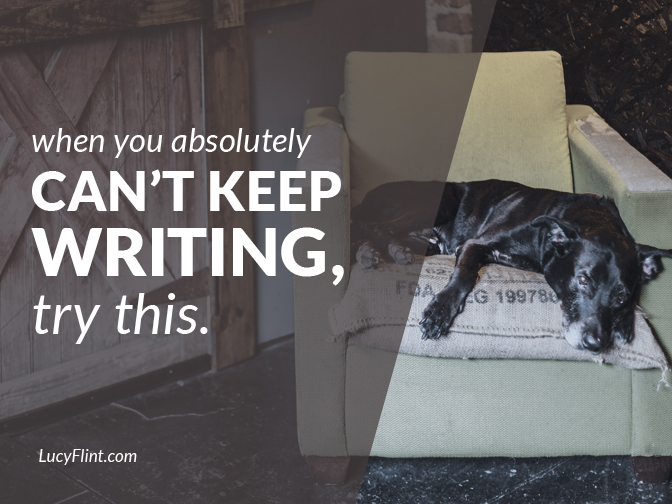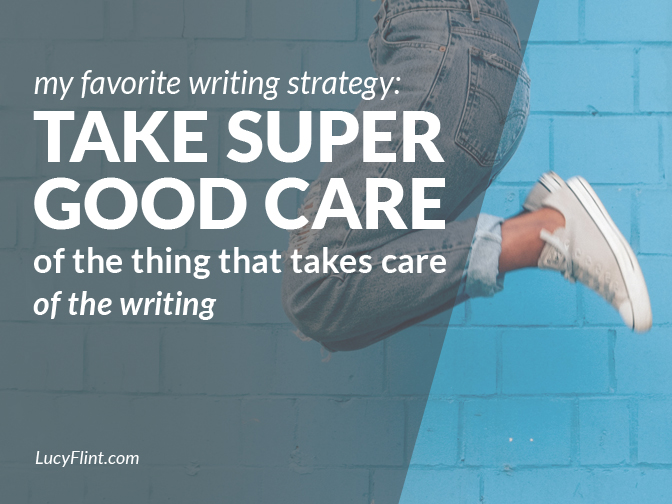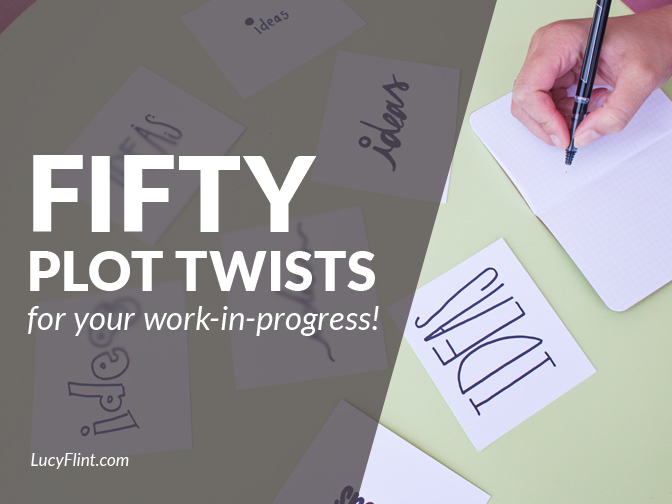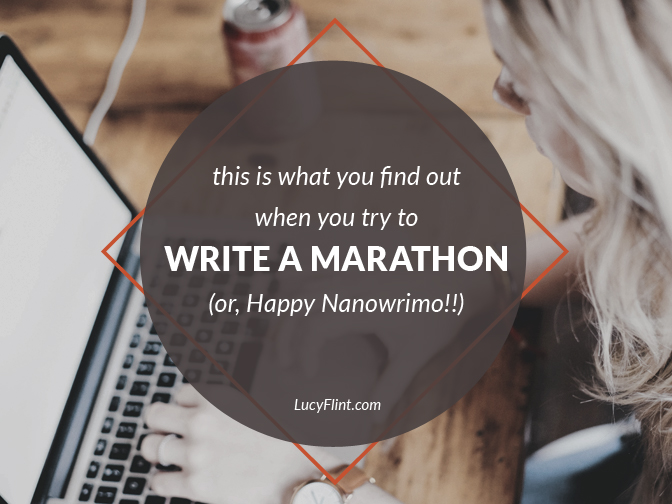When You Absolutely Can't Keep Writing, Try This
/And then. The day comes when your brain feels as lively and full of words as a rubber pancake.
And you hear yourself saying the dreaded words: "I think I've hit a wall."
What do you do? When your eyes are buggy, your fingertips numb, and your grip on the language isn't exactly a grip?
What do you do when you can't keep writing, but there's too dang much of the draft still to go?
You throw out every single standard or expectation for this draft that you're still holding on to.
ALL of 'em.
(Don't panic. You can bring your standards back when things are moving again. But for now, you just don't need them. For now, the goal is: Unstick this word machine and get it back on track!)
Here are four tricks I use to lower the bar, shake up the draft, and get my story moving again.
1. Forget about paragraphs: Start writing in list form.
What?! Like, with bullet points?
Yes! Certainly! Why not?!
If your story is stuck, and you have no idea what should happen next, list the possibilities.
Right there in the draft. Yes, really!
And let your characters talk back to you about each one. Conduct a little story interview.
Explore the different options: not by thinking about them, but by writing.
Write down what you love about the different options. Write down what draws you deeper. And when a possibility makes your heart beat a little faster, start writing your draft in that direction.
2. Don't worry about writing actual sentences either.
Judy Reeves writes about the power of creating a run-on sentence: every time you'd naturally write a period, try putting a comma, and then keep on pushing.
She says, "Follow the last word with another specific image that takes the writing further, then do it again and again."
When I first heard that, I thought, Yeah, right, whatever.
Then I tried it, and whoa: She's totally right. It unlocks doors. And it helps me feel more like an explorer-writer, and less like a this-has-to-be-done-CORRECTLY writer.
Which is really good news for getting past walls in the draft.
3. When your story's really on the rocks, talk to yourself.
Last year, I hit an absolute wall in my manuscript. Half the characters were stranded in a farmhouse, with unknown and undefined villainy pressing in around them, but they didn't have any kind of game plan... and neither did I
I was so stuck. After a LONG time of staring at my notebook, I switched tactics: I started talking to myself about the story... in narrative form.
I started scribbling like this: "Okay, Lucy, so they're all at the farmhouse waiting, but who wants to just watch characters wait? So what SHOULD they be doing? Is anyone getting ready for the climax? Because they totally should be. Okay. Which characters are really involved in this section, and what skills do they have? What are they worried about? Is there some narrative something I haven't cashed in yet? A subplot that hasn't gotten its due in a while? How's Claire doing? What about that one guy--we haven't heard from him in a while. Maybe I should explore... "
I know. It doesn't make for exciting reading. But I kept on writing like that. Letting my pen keep moving, asking myself questions, searching for what should happen next.
And guess what. After quite a few pages of rambling, I found it.
I wrote my way out of that problem, and back on track.
(Yes, some very strict people might argue that this isn't actual WRITING on my actual STORY and should therefore NOT COUNT... but let's all check our writing-a-first-draft guidebooks, shall we? It isn't about being strict.
When I revise, I'll be able to consider all the possible ways of filling that narrative hole: All my talking to myself is a giant placeholder. A placeholder studded with actual ideas.
And since my goal was finish the draft and not solve this plot dilemma right now and perfectly, this solution totally worked.)
4. Switch your writing medium.
If you've been writing on a computer, try writing by hand. (I did all of last year's Nanowrimo by hand! I promise it can be done!)
If you're already writing longhand, try swapping your notebook for a stack of index cards. Or even little sticky notes.
It's easier to look at a small piece of paper and say: "Okay, so what might happen next?" And even a very tired brain might roll its eyes, and say, "Well, sure, I can write THAT much."
Whichever method you try, remember this: The point of a rough draft (especially a Nanowrimo draft) is to GET SOMETHING DOWN ON PAPER.
You're getting the idea down. You're exploring possibilities.
It is supposed to be rough. The edges are meant to be jagged and frayed. There are supposed to be plenty of holes!
So when you feel like you can't keep going, do a quick expectations check. Figure out which standards you're still clinging to, and drop 'em!
Don't just accept imperfection: rush out and find it! Give it a huge hug! Because it's your best friend when the writing is hard.
You can fix the holes later, I promise. And it's so much easier to fill holes in a finished draft.
Resuscitating a permanently-stalled one, on the other hand, is brutal.
Write messy. Write muddy. Fall down a lot. And keep on writing.
















